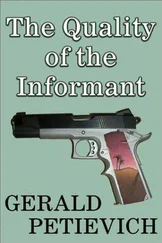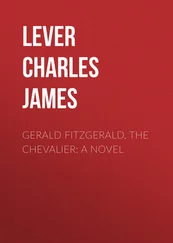I cried: ‘Oh, Uncle——’
‘– Oh, nephew!’ he snarled, glaring at me again. ‘I decided, from that moment on, that you were a beastly little prig. I promised my dear sister-your unhappy mother – that I’d look after you. Poor girl! Your father, whom she went and married – bolts and bars wouldn’t hold her – against all our advice, was a blackguard and a scoundrel and a rogue and a vagabond. But at least he had the decency to go to the devil like a man, if not a gentleman. Whereas you – you whey-faced marigold——’
‘– Uncle, I cannot help the colour of my hair!’ I said.
‘You can’t help anything, you!’ said he. ‘I wonder that you have the nerve to interrupt me. Why, you spaniel, for less than half of what I’ve said to you, I would have struck my own father in the face! My elder brother practically did so to my father for much less, and was kicked out of doors, and went and made his fortune in Africa … and I wish I’d gone with him…. Oh, you spiritless thing – I’d have thought better of you if you had knocked me down, just now, instead of whimpering: “Uncle, Uncle, Uncle!”’
And I could only say: ‘But, Uncle !’
‘– And yet,’ my uncle said, ‘there must be some kind of a spark of spirit in you, somewhere, or you wouldn’t have had the nerve to fall in love with this Mavis of yours. All the same, you should have got that kind of nonsense out of your system, the time I gave you that ten-pound note. “He who commits no follies at twenty will commit them at forty.” Whoever said that was quite right. So here you are, infatuated, at your age——’
‘– Uncle, I’m only thirty-nine!’ I said – and, to save my life, I could not have stopped my voice breaking – ‘and it isn’t infatuation. It’s true love!’
‘That would make it a thousand times worse, if it were true. Only it isn’t. It can’t be. True love, indeed – you, of all people!’
‘And why not me, as well as anyone else?’ I asked.
‘Why not you?’ he replied. ‘Because … you are you. True love’s for men. And what are you? A marigold, a carrot – aha, there he goes, blushing again like a tomato! – a weed, a vegetable; anything you like except a man. Love, young Rodney, takes blood and fire. All the fire in you has gone into your ridiculous hair; and all the blood in your body you need to blush with…. Infatuation, I say – don’t dare to interrupt – infatuation with a common dancing girl, who gets paid a couple of pounds a week for showing her fat legs to every Tom, Dick, or Harry who has sixpence to pay for a ticket!’
Even if I had not been choked with misery and rage, I dare say I should have held my tongue. My uncle was in one of his moods, and if I had told him that Mavis had slender and beautiful legs, he would have corrected himself into further offensiveness by saying: I beg your pardon, skinny legs. If I had argued that, say, Pavlova was also, by his definition, a ‘dancing girl’, and that Mavis was a serious Artiste in Ballet, he would have said, with an unpleasant leer: Oh yes, we know all about that! So was Signora Scampi, when my father set up an establishment for her in Brook Street, in 1883…. Brutal ignoramus as he was, he had a talent for turning any word to his own purpose. So I was silent, while he went on:
‘Now, if you’d been anything like a Man, I’d have been the last to object to your marrying a dancer. I nearly did myself, once – wish I had – she had legs, at least, to recommend her, which is more than my barren scrub of a Lady had … and, as for morals, if any: better. At least, La Palestina was frank, which is more than could be said for our own skinny-shanked, goosefleshed womenfolk … curse and confound them, from their droopy eyelids to their long cold feet! …
‘However, let’s not waste words. Marry your dancer, and not only will I strike you out of my will, but I cut off your allowance. Now then! Decide.’
‘But, Uncle!’ I said. ‘I love Mavis, and she loves me.’
He said, with a sneer: ‘You are infatuated with your Mavis, and she is in love with the eight hundred pounds a year I allow you. I ask you, you radish, what else could any full-blooded woman find in you to love?’
I might have said that Mavis was not the type of ballet dancer of my uncle’s turbulent youth; that she was by no means what he, and his type, would have described as ‘full-blooded’, being dark and slender, petal-pale and serious. But then he would only have snarled a laugh and cursed himself, saying that it was just as he had thought all along – the girl was anæmic, unfit to breed from, and he would see himself damned before he countenanced such a blend of milk and water.
‘Rodney, my boy,’ he said, ‘I want your word, here and now. Give up any idea you might have of marrying this girl. If not, I send a note to Coote tomorrow, and that will cost you eight hundred a year while I’m alive, and my money when I’m dead. You know me, Rodney. I’m a bull-terrier when I lay hold, and my mind’s made up…. Well?’
I said: ‘I’ll do as you say, Uncle Arnold. I’ll give her up.’
Then he struck the table a blow with his purple fist, and shouted: ‘I knew you would! Oh, you milksop! If you had defied me, I’d have raised your allowance to twelve hundred, and given you my blessing; and kissed your bride for you. As it is, you stick of rhubarb, your allowance is henceforward reduced to six hundred pounds a year. And let this be a lesson to you…. True love, eh? And you’d sell it for eight hundred a year!’
‘Oh, but, Uncle——’ I began.
‘– Oh, but, Uncle! Why, do you want to know some thing? If I had been you, I would have confronted my old uncle with a fait accompli. I’d have said: ‘Uncle, I have married such-and-such a girl. Take her, or leave her! And then – I’ll tell you something – I’d have been for you one hundred per cent. Oh, you …!’
And, of course, it must be at this wrong moment that I find the courage to say: ‘Uncle, Mavis and I were married three months ago.’
He started to puff out his cheeks, but, remembering that his doctor had warned him to control his temper, sucked them in again. When he subsided, I had never seen a more terrifying mixture of malignancy and mirth than his face expressed. He said: ‘Oh, you did, did you? And you have the gall to tell me so, now?’
I protested: ‘But, Uncle! You just said——’
‘– I just said, you worm, that if you had had the spirit to tell me so in the first place, I’d have thought better of you. But no, not you! You’ve got to sniff and fumble your wormish way, you have; until I let fall a word, and then you’re as bold as brass, you copper-headed Thing! … Oh, so! You married the girl, did you? Well, if I could half-guess that she loved you for yourself (as she might have loved me for myself) instead of for the money I provide you with, blast my eyes but I would have allowed you twenty-four hundred a year! But as it is, just because you’re such a sniveller, I cut you down to … did I say six hundred a year? Beg pardon: four hundred. Your allowance is cut in two, young Rodney. And for every time, hereafter, you whine Oh, Uncle, I cut you another fifty. Now then!’
He knew my old servile habit; he tore the protest out of me, as surely as if he had me on the rack. ‘Oh, Uncle!’ I cried.
‘Three hundred and fifty pounds a year,’ he said, with satisfaction.
‘You don’t do me justice,’ I said. ‘You have always made a mockery of me, just because I have red hair and never liked to hunt or shoot!’
Talking to the chandelier, again, my uncle murmured, making a burlesque of my accent: ‘He didn’t think it was fair for the Hunt to ride after one poor little fox … and when I winged a partridge and knocked its head against my boot, he burst into tears…. Poor boy!’
Читать дальше











